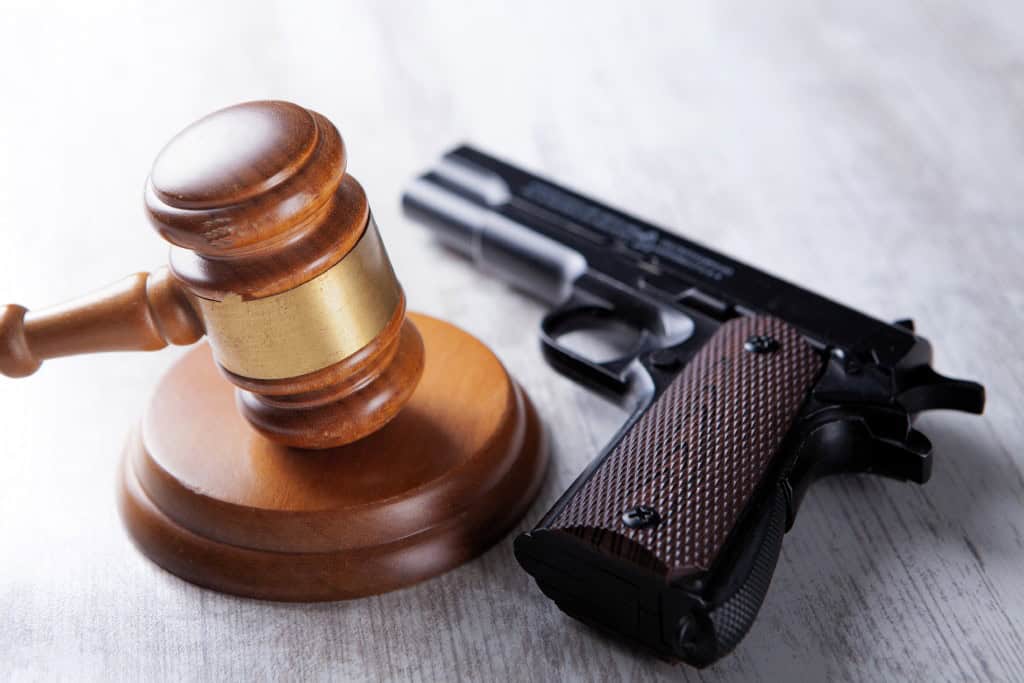A federal judge has blocked enforcement of new concealed carry restrictions that were advanced by New Jersey Democrats and signed into law by Democratic Gov. Phil Murphy in December.
When Murphy signed A-4769/S-3214 into law he said the action delivered on the promise he made in the immediate aftermath of the U.S. Supreme Court’s Bruen decision when he unveiled a legislative proposal to maintain New Jersey’s status as a model for gun safety by strengthening restrictions for who is eligible for a public carry permit, and establishing a list of places where people with carry permits cannot bring their firearms.
In response to the court’s recent action blocking enforcement of the new law, Republican state Sen. Anthony M. Bucco (R-Morris and Somerset) issued a press release and said, “We knew the law was likely unconstitutional since it copied major portions of a New York law that has already suffered serious setbacks in federal court.
“Despite all of our warnings, Gov. Murphy and Trenton Democrats plowed ahead and enacted an obviously flawed proposal. Yet again, the Legislature will have to revisit one of their bad laws to fix the mess they created,” Bucco said.
Bucco said he hoped the ruling would be a wake-up call for Democrats to work toward sensible concealed carry regulations that can pass constitutional muster.
“To my Democrat colleagues, I hate to say ‘I told you so,’ but I told you so,” Bucco added. “Maybe now they will be willing to work with us on sensible solutions to ensure the legal concealed carry of firearms can be practiced in a safe manner in accordance with the U.S. Supreme Court’s decision in Bruen.”
Regarding the court’s recent ruling regarding New Jersey’s concealed carry restrictions, Scott L. Bach, executive director of the Association of New Jersey Rifle and Pistol Clubs, said, “The era of politicians trampling Second Amendment rights is over in New Jersey. This is just the first in what will become a long succession of unconstitutional laws that will be brought down in the Garden State.”
According to a Dec. 22 press release from Murphy’s office, in June, the U.S. Supreme Court ruled in the N.Y. State Rifle and Pistol Association v. Bruen case that it is impermissible to require applicants in New York to show “proper cause” to carry a handgun in public.
The court’s decision had the effect of invalidating New Jersey’s longstanding laws restricting public carry to those individuals who could demonstrate a “justifiable need,” according to the press release.
Murphy unveiled a proposal that, according to the press release, was consistent with Bruen, would strengthen the statutory disqualifiers for those individuals eligible for a carry permit, and significantly expand the list of sensitive places where individuals cannot carry firearms.
At the same moment Murphy was signing the legislation into law on Dec. 22, the Association of New Jersey Rifle and Pistol Clubs was filing a federal lawsuit seeking to block what it called an “unconstitutional new measure.” That litigation remains ongoing.
Under the law signed by Murphy, the list of sensitive places where concealed carry is not permissible includes the following three categories (a complete list is included in the law):
High-density locations
• Entertainment venues, including stadiums, arenas, amusement parks, casinos, racetracks, and publicly owned libraries and museums;
• Youth sporting events and other recreational facilities, such as public parks, beaches, and playgrounds;
• Bars, restaurants where alcohol is served, and any other locations that serve alcohol for on-premises consumption;
• Airports and public transportation hubs;
Locations with vulnerable populations
• Schools, colleges, and universities;
• Daycare and child-care facilities;
• Hospitals and health care facilities;
• Long-term care facilities and nursing homes;
• Correctional facilities, juvenile justice facilities, and halfway houses;
• Homeless shelters;
Locations with governmental and First Amendment activity
• Polling places;
• Courthouses;
• Law enforcement stations and offices;
• Government buildings and locations with government meetings;
• Demonstrations, protests, and licensed public gatherings;
In addition to those three categories, the bill sets a default rule that firearms cannot be carried on private property, including homes, businesses, stores and houses of worship, unless the property owner expressly communicates permission through express consent or specific signs.
The only exceptions to these rules are for law enforcement officers or private security guards, according to the press release.

